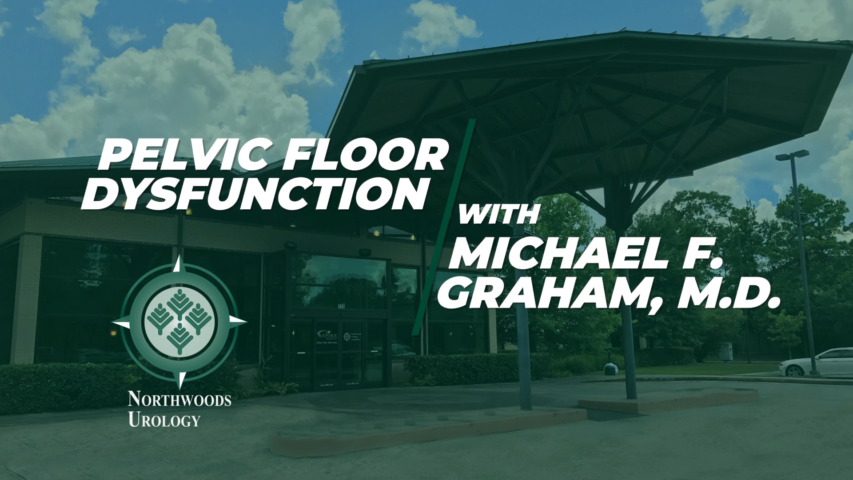Transcript of Video
I’m Dr. Michael Graham. I’m a urologist here at Northwoods Urology of Texas. And I’m here today to speak a little bit about pelvic floor dysfunction in women. Pelvic floor dysfunction in women can be fairly complicated just because it’s a area that involves urologists, gynecologist, even colorectal specialists, depending on the situation.
So in general, it has to do with, oftentimes, painful symptoms. Those can be involving sexual activity or sexual intercourse, can do with bladder filling and bladder emptying, and it can even have issues related to sensation of needing to defecate. There’s just a variety of things that could be evidence that a patient has a pelvic floor dysfunction. Patients that are suspected to have pelvic floor dysfunction can present to any number of doctors. And some of the more common ways that they might present would be unexplained pelvic pain, unexplained urinary symptoms in the absence of signs of infection or other obvious causes of pain like urinary stones.
Similarly for the gynecologist, they might present with discomfort, pelvic discomfort or vaginal discomfort, again, without the evidence of yeast infections or prolapse of the bladder, prolapse of the rectum, or poor support for the uterus. And for patients with pelvic floor dysfunction, one of the principle jobs of the physician who initially evaluates the patient is just to exclude other causes, exclude infections, exclude tumors, exclude urinary stones, to make sure that there’s not something structural going on that’s causing the problem.
Once those have been excluded, medication could be an option. There’s physical therapy that’s available. Lifestyle changes can sometimes have an impact as well to lessen the symptoms. So if you are having symptoms that you think might be related to pelvic floor dysfunction, and you’ve seen a variety of specialists, and it’s still unclear to you whether these are present or not, please call our office or contact our office to schedule an appointment.




